07 Feb 2022
Daniel Korchinski Presents on Ars Scientia and Physics
On Thursday, 17 February 2022 at 4 pm, Daniel Korchinski, PhD student at the Stewart Blusson Quantum Matter Institute, will discuss his collaboration with artist Josephine Lee as part of the Ars Scientia residency program, where the two identified points of intersection in their practices through glassblowing.
Korchinski introduces his presentation, Ars Scientia: An artist and a physicist walked into a glassblowing studio…: “I’ll describe how it plunged this theoretical physicist into a messy (and fun!) glassblowing studio, why it saw me capturing explosions at 100,000 frames per second at the hospital, and how some serendipitous physics observations have taken me into the lab. Come learn a bit about the physics of glass and other avalanching systems, as well as how to make the most of an art and science collaboration!”
This presentation will be hosted over Zoom, and is free and open to the public; to register, visit the Department of Physics and Astronomy.
Ars Scientia is an interdisciplinary research partnership between UBC’s Stewart Blusson Quantum Matter Institute (SBQMI), the Department of Physics and Astronomy and the Belkin that seeks to foster knowledge exchange across the arts, sciences and their pedagogies by pairing artists and scientists in a six-month residencies to explore the potential for academic art-science collaborations.
Image (above): Ars Scientia Signals and Apparatuses Symposium, 25 November 2021, photo: Paul Joseph, UBC
Related
-
Event
10 Sep 2021
Ars Scientia: Sensorial Walk with Holly Schmidt
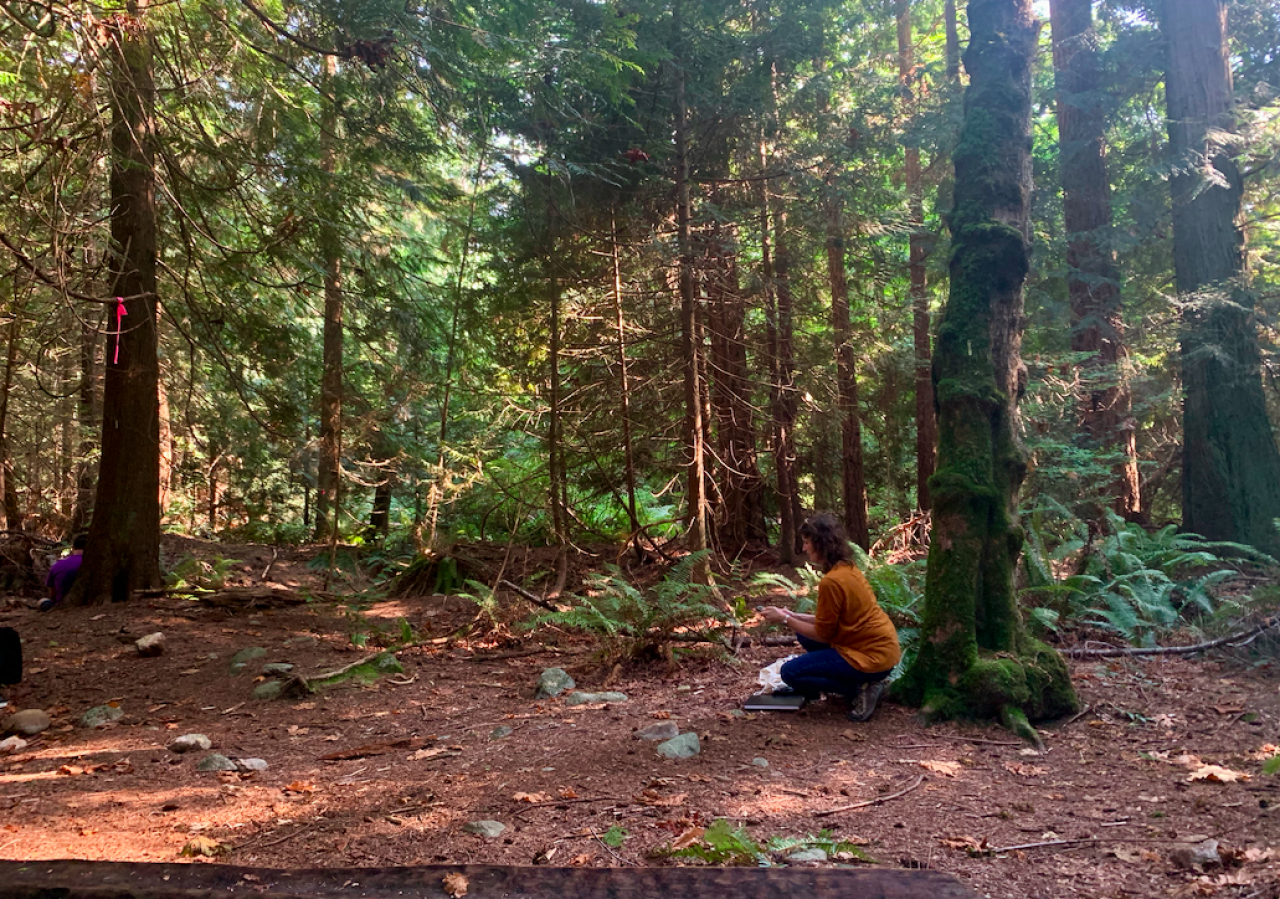
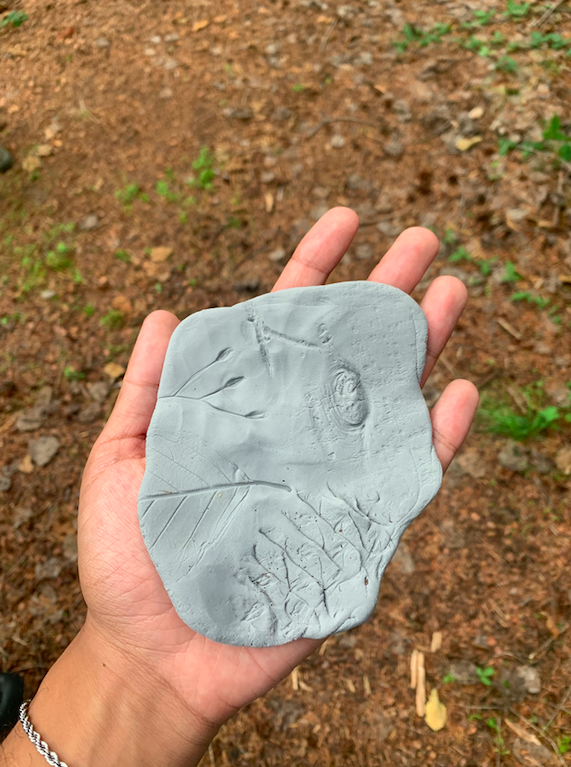
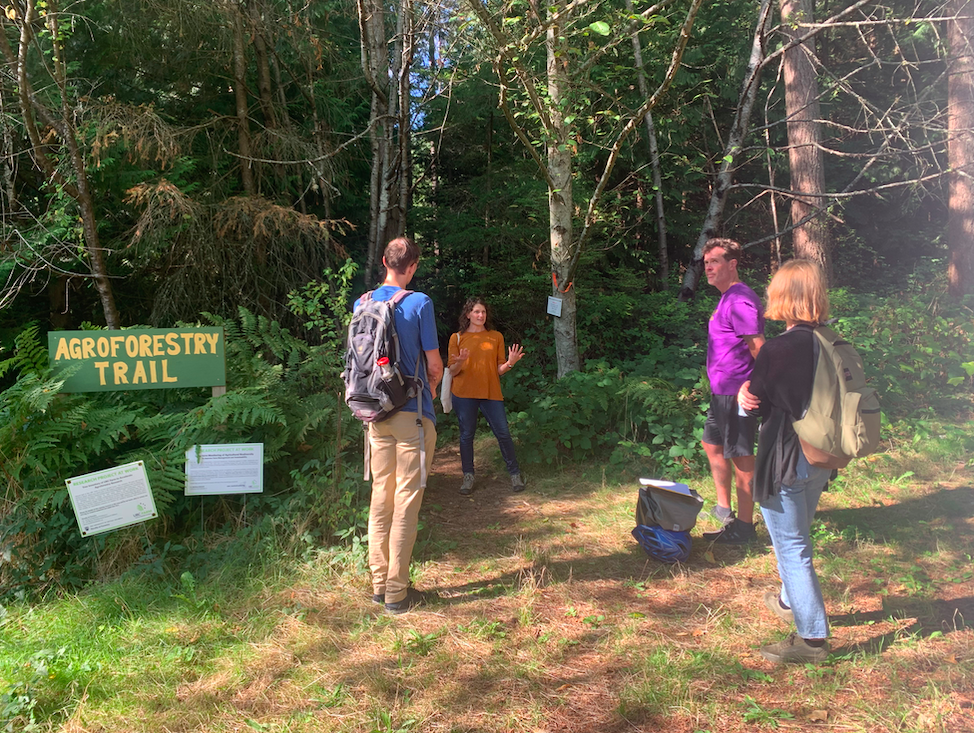

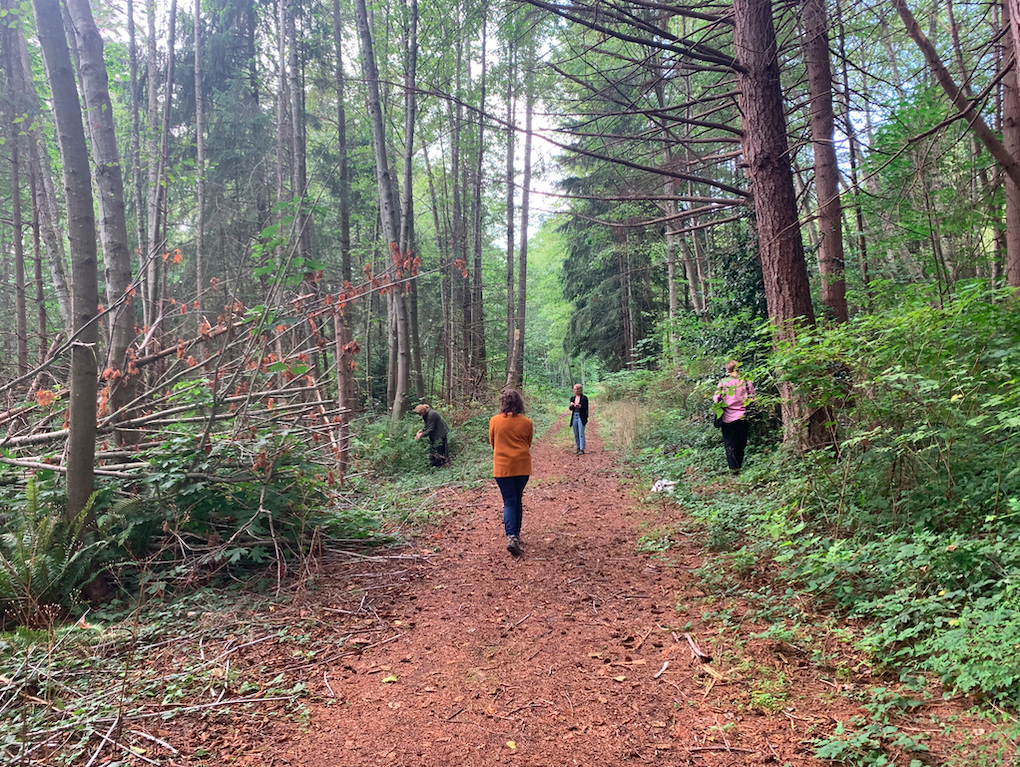 [more]
[more]
-
Research Project
2021 - Ongoing
Ars Scientia: Merging Artistic Practice with Scientific Research
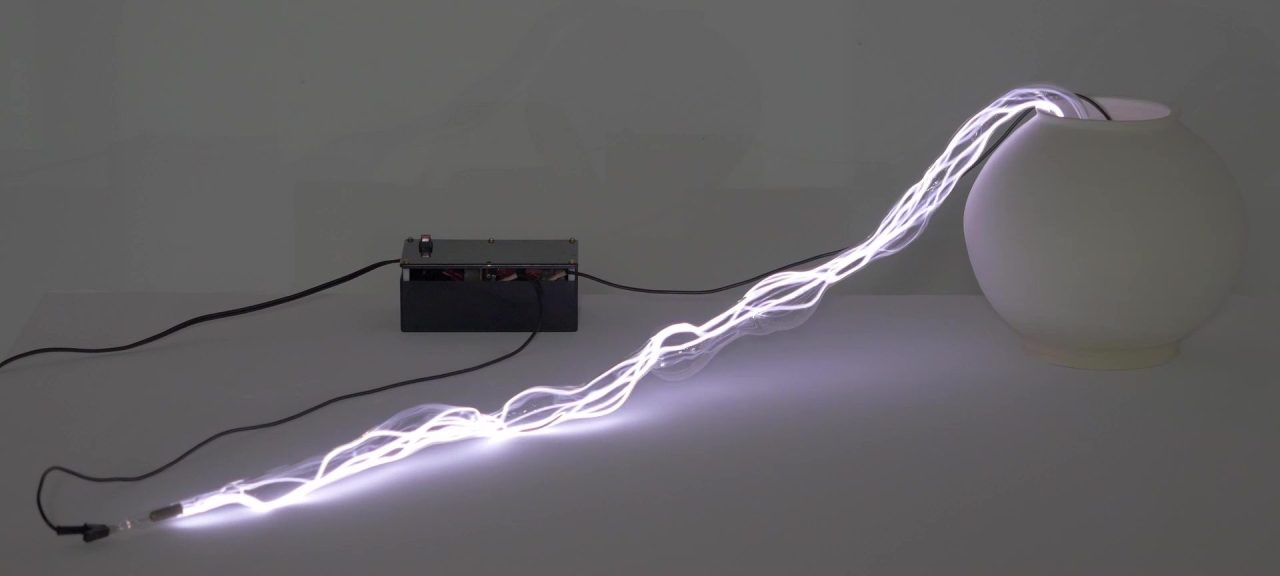
The long search for dark matter has put the spotlight on the limitations of human knowledge and technological capability. Confronted with the shortcomings of our established modes of detecting, diagnosing and testing, the search beckons the creation of new ways of learning and knowing. Fusing the praxes of arts and science in the emergent fields of interdisciplinary research, Ars Scientia, a tripartite partnership between UBC's Stewart Blusson Quantum Matter Institute (Blusson QMI), the Department of Physics and Astronomy and the Belkin, presents an opportunity to foster new modes of knowledge exchange across the arts, sciences and their pedagogies. Funded by UBC’s Research Excellence Cluster program, Ars Scientia will conduct rich programming and research to address this line of inquiry over the next two years beginning in 2021.
[more] -
Event
Thursday 25 Nov 2021 at 2 pm
Symposium: Signals and Apparatuses
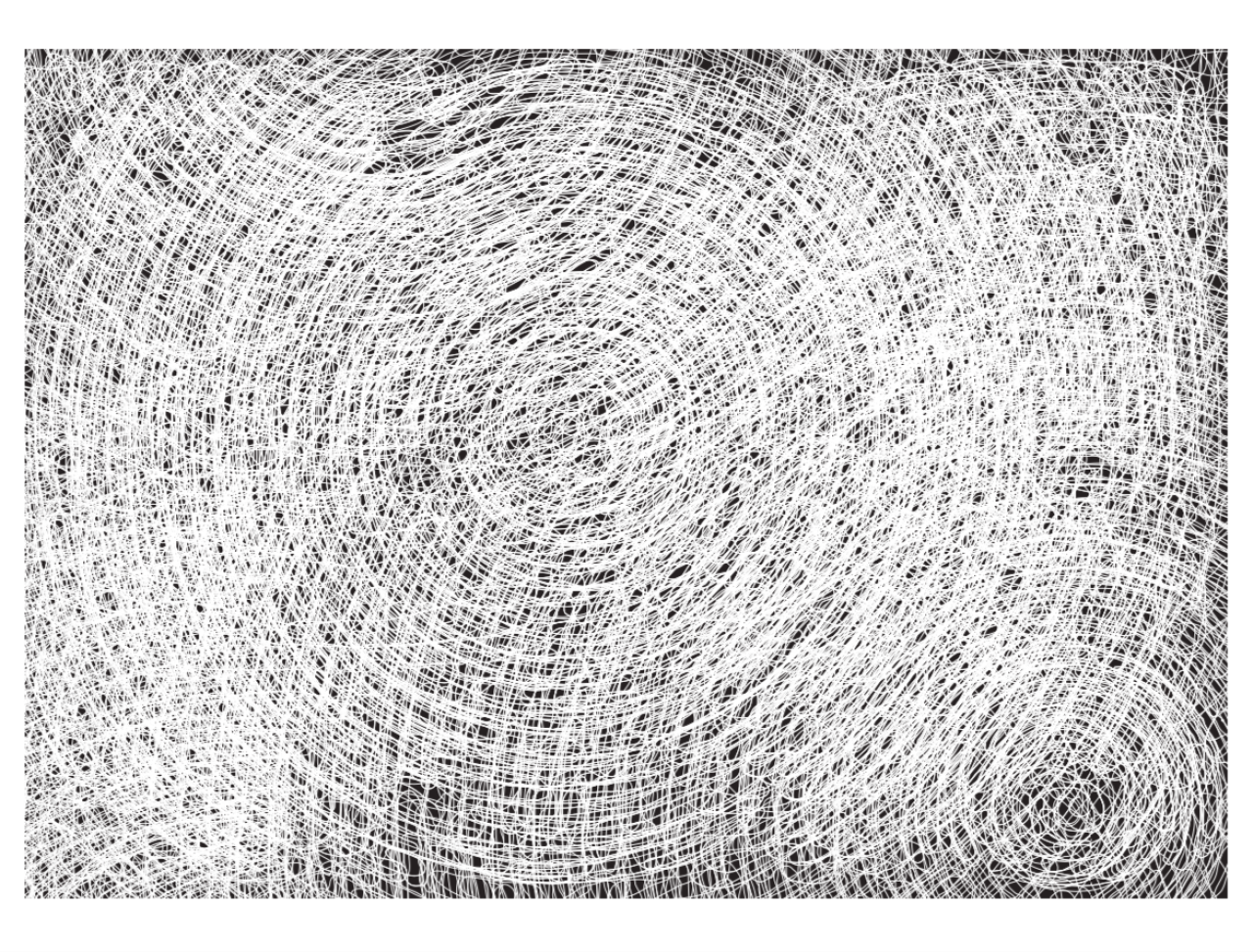
Beginning in May 2021, the Ars Scientia research cluster connected artists with physicists in a collaborative residency program to discuss and explore the intersections between the disciplines of art and science. On Thursday, 25 November 2021, the groups convened at a research symposium, Signals and Apparatuses, to share their experiences in the residency and engage in an interdisciplinary discussion with the academic community at UBC. Denise Ferreira da Silva offered opening remarks, which were followed by a discussion with Drift exhibition artist Nadia Lichtig and graduate student Rhea Gaur, alongside presentations from Ars Scientia collaborators.
[more] -
Exhibition
10 Sep – 05 Dec 2021
Drift: Art and Dark Matter
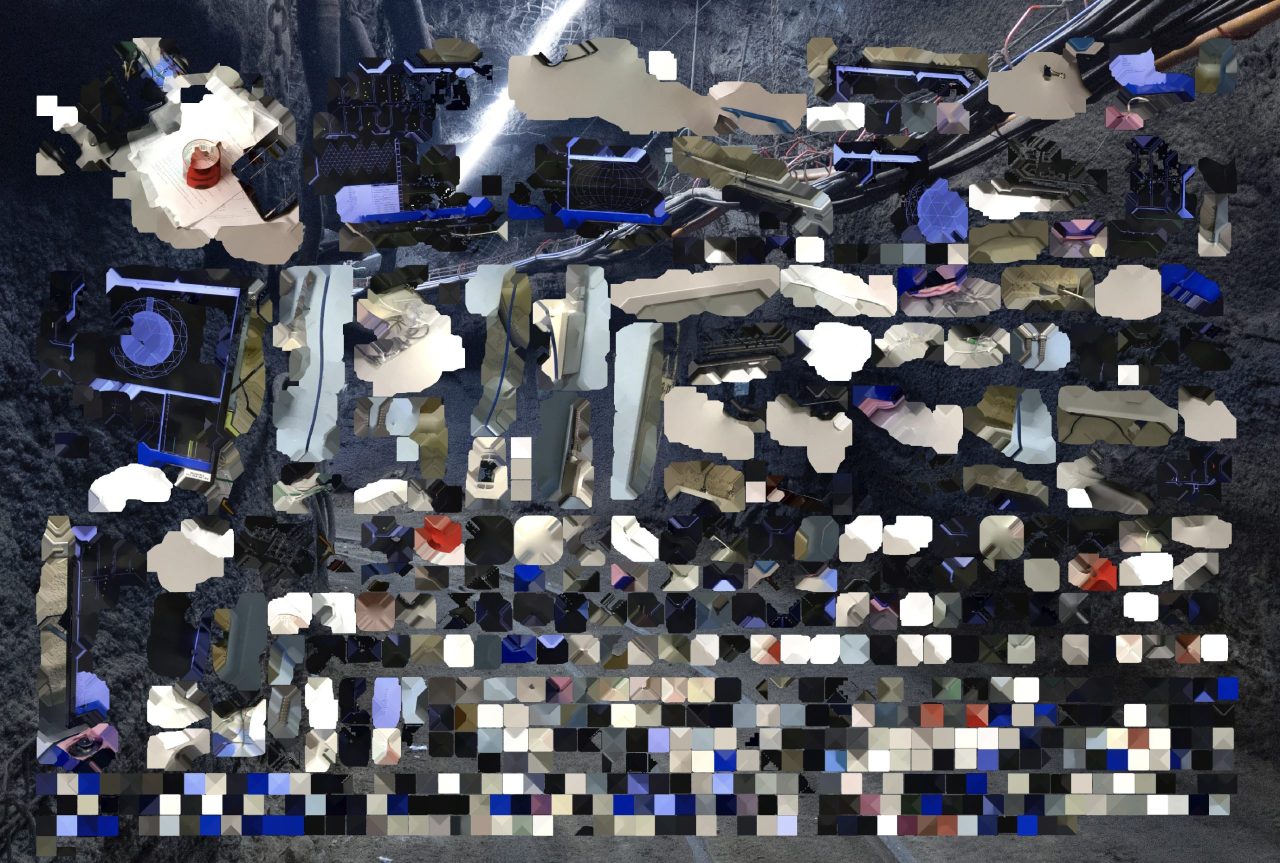
Drift: Art and Dark Matter is a residency and exhibition project generated by Agnes Etherington Art Centre, the Arthur B. McDonald Canadian Astroparticle Physics Research Institute and SNOLAB. Four artists of national and international stature were invited to make new work while engaging with physicists, chemists and engineers contributing to the search for dark matter at SNOLAB’s facility in Sudbury, two kilometres below the surface of the Earth.
[more] -
News
14 Sep 2021
Drift: Reading Room
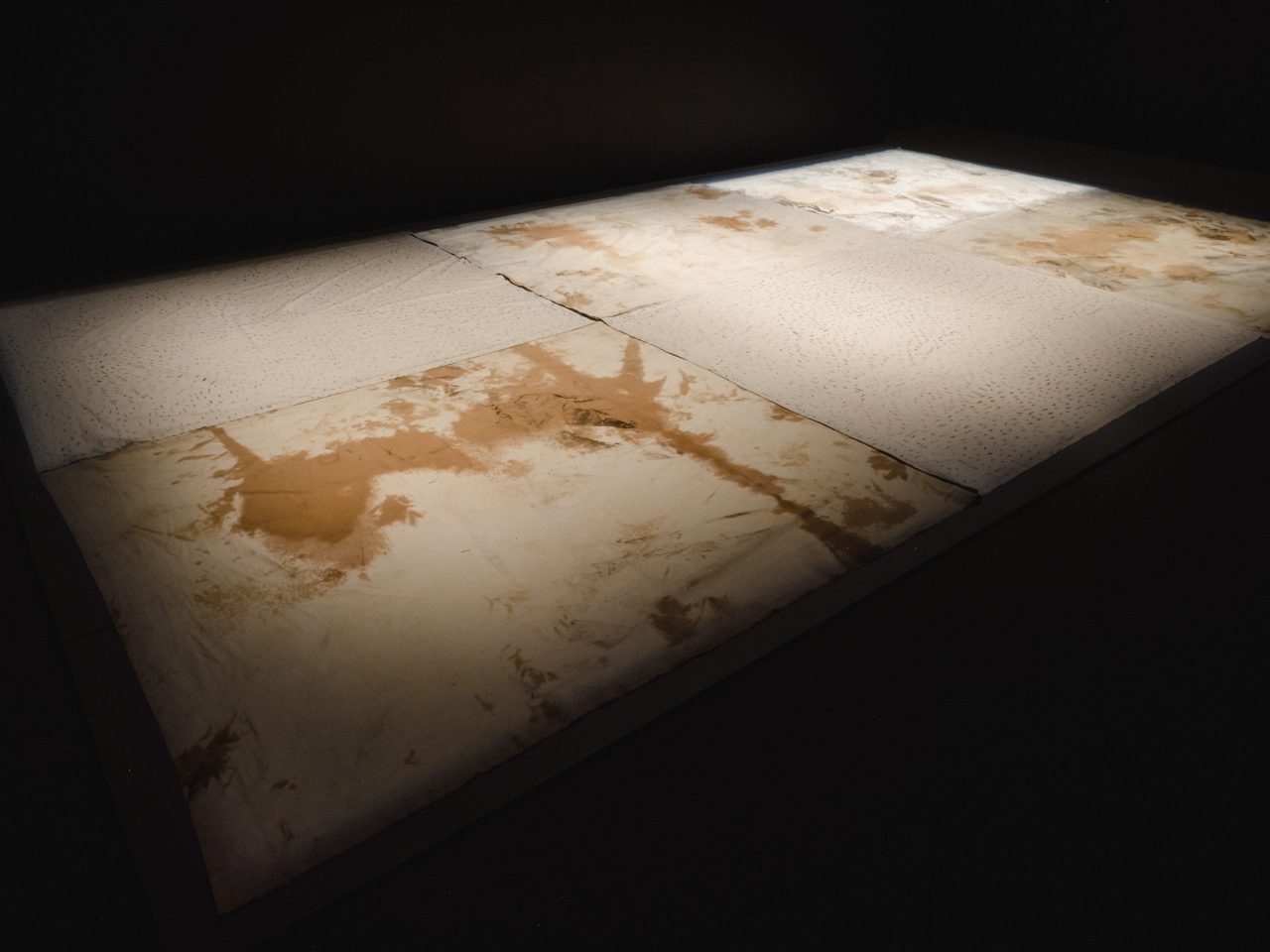
Resources related to the artists in Drift: Art and Dark Matter. This list is not exhaustive, but rather comprised of suggested readings compiled by researchers at the Belkin. These readings are intended to provide additional context for the exhibition and act as springboards for further research or questions stemming from the exhibition, artists and works involved.
[more] -
Event
Thursday 9 Sep 2021, 6 pm
Drift: Opening with Denise Ferreira da Silva and Jol Thoms
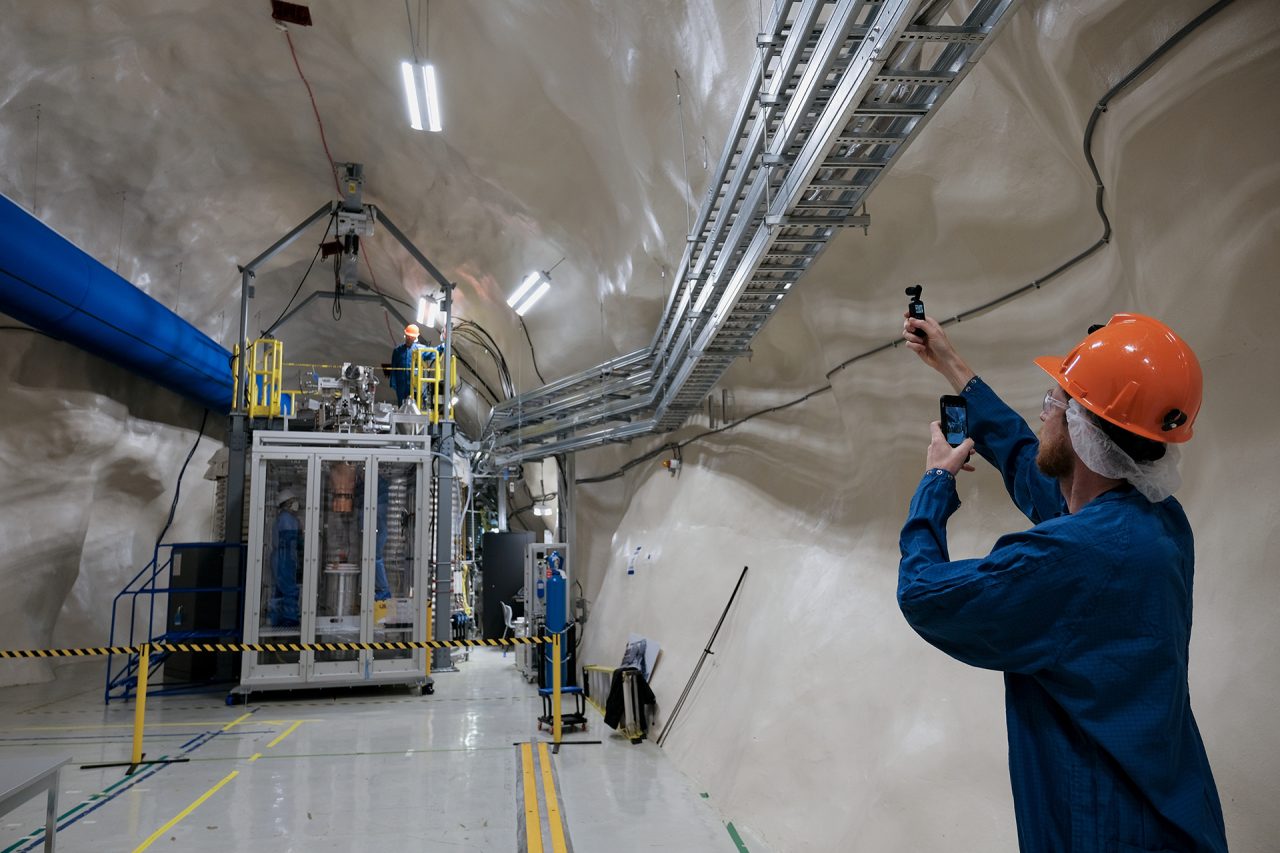
Please join us for the opening of Drift: Art and Dark Matter with a performance-conversation by artists Denise Ferreira da Silva and Jol Thoms. Ferreira da Silva and Thoms will touch on intersections between Soot Breath / Corpus Infinitum (2020) and n-Land (2021), both of which will play throughout the evening on the Belkin Screen.
[more] -
Tour
SATURDAY 30 Oct 2021, 1-1:30 PM AND 2-2:30 PM
SUNDAY 14 Nov 2021, 1-1:30 PM AND 2-2:30 PM
SATURDAY 27 Nov 2021, 1-1:30 PM AND 2-2:30 PM
SATURDAY 4 Dec 2021, 1-1:30 PM AND 2-2:30 PM
Tours: Drift with Rhea Gaur
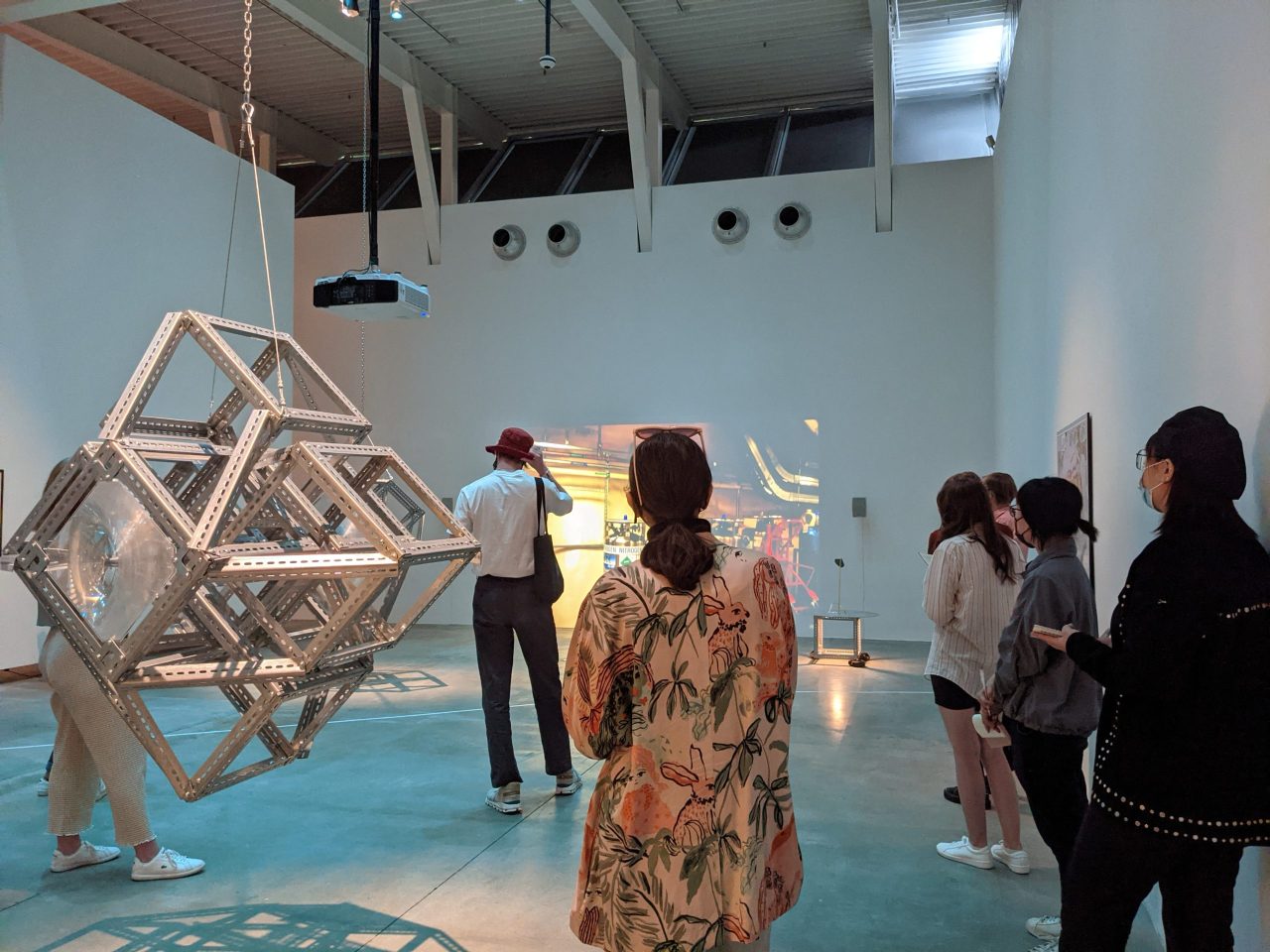
On select Saturdays and Sundays, join us for short drop-in tours of Drift: Art and Dark Matter with UBC Department of Physics graduate student Rhea Gaur. While advance registration is not required, tours will be capped at 15 guests.
[more]